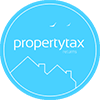A lot of people ask us how they can get the most out of their rental properties at tax return time.
This is a good question and is important considering that all investments have taxation consequences, property investment being no different. In fact, many investors factor in the tax benefits of owning a rental property when deciding what investment mix is right for them.
Below are some simple tips to ensure that you can make the most of your rental property investment at tax time:
1. Record keeping:
The number one rule to win at tax time is to keep good records of the income and expenditure in relation to your rental property.
Keep a separate bank account for your rental property and keep records (including receipts) of all transactions involving the rental property. An investor can use a simple cashbook set-up in excel or use accounting software such as Xero to track income and expenditure during the year.
In our experience investors who keep good records achieve a better outcome at tax time than those who do not, it’s as simple as that.
2. Ownership structure:
It is very important to get the ownership structure correct to ensure that any losses can be utilised where they are of the most benefit.
Long or short-term ownership, servicing requirements, asset protection, fiscally transparent entity or personally owned and the tainting rules are just some of the things to consider when deciding on what structure is appropriate for your needs.
For example, holding a rental property in a Trust may offer asset protection, however any losses derived cannot be distributed to beneficiaries and therefore the tax benefits of the loss cannot be unlocked. Further, a Look Through Company (similar to an old LAQC) which is a fiscally transparent entity may seem like a good idea, however the LTC rules are complicated and the same tax benefits can be easily obtained in an ordinary partnership or as tenants in common. Obtaining up front structuring advice is the best way to make the most at tax time.
3. Tax effective debt vs non tax effective debt:
For a property investor at tax time, interest is one of the largest tax deductible expenses you will have. Ensure that any interest bearing debt is related to the purchase of your rental property and therefore meets the necessary connection with income so as to be deductible at rental property tax return time.
For example, if you have a mortgage for both your personal property and your rental property and you come into some money and want to reduce your borrowings. Ensure that you pay off your personal home mortgage, where the interest cost is not deductible rather than the rental property mortgage which has benefits at tax return time.
4. Get good advice:
We can’t stress this point enough! Use an accountant who specialises in property. The taxation rules in New Zealand are wide and varied and an accountant who specialises in property tax returns will be able to ensure that you get the greatest benefit come tax time!
We hope this article was helpful, if you have any questions, feel free to contact the team at www.propertytaxreturns.co.nz for no obligation advice on any property tax queries you may have.
Disclaimer: No liability is assumed by www.propertytaxreturns.co.nz for any losses suffered by any person relying directly or indirectly upon the article above. It is recommended that you consult an advisor before acting on any information in this article.
